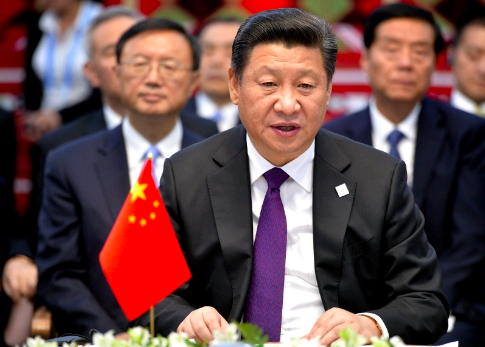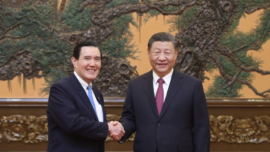The appointment of Xia Baolong as the new Director of the Hong Kong and Macau Affairs Office of the State Council (HKMAO) is part of a reshuffle by a Chinese president displeased with the performance of officials previously responsible for Hong Kong, and could represent a more top-down and hardline approach to the SAR in the future, analysts told Macau News Agency (MNA).
Yesterday it was revealed that Xia, the Vice Chairman and Secretary General of the Chinese People’s Political Consultative Conference (CPPCC), would replace Zhang Xiaoming as Director of the HKMAO, who was now reappointed to Deputy Director for daily operations.
Xia’s installation follows last month’s appointment of Luo Huining as head of China’s Liaison Office in Hong Kong, replacing Wang Zhimin in another move seen as being motivated by discontent over the handling of public unrest in the city.
“I think it is in some ways a continuation of holding these officers responsible for the mess in Hong Kong since last June. [Wang and Zheng] have made a lot of mistakes in terms of judging the local situation,” Ma Ngok, an associate professor in the Department of Government and Public Administration at Chinese University of Hong Kong, told MNA.
“Obviously this is a demotion and both replacements are former high-level officers because they were provincial party secretary, and he obviously has close ties with Xi Jinping.”
Xia, 67, was Xi’s deputy when the now-President was Communist Party Secretary of Zhejiang province from 2003 to 2007, and later became Party Secretary of the province himself in 2012.
“Beijing authorities are unhappy with the work on Hong Kong. Xia is a deputy director of CPPCC, meaning that he as a united front leader will repair the damage on Hong Kong’s united front work,” political analyst, Sonny Lo, expressed to MNA.
“We may expect some personnel and policy changes on the part of the HKSAR government, for personnel changes at the top level at Beijing level are exerting more pressures on Hong Kong’s side to change as well.”
Chinese authorities also announced yesterday that Luo Huining and the current Macau Liaison Office Director, Fu Ziying, would also be deputy directors at the HKMAO.
For Professor Ma, all these recent changes seemed to represent an intent by President Xi to take tighter control of a city shaken last year by public unrest and discontent towards both its own administration and perceived influence by the Chinese government on its affairs.
“Before these two officers [Luo and Xia], the people that were in charge of the Hong Kong and Macau Affairs Office and Liaison Offices usually had some experience with Hong Kong. Now both have no experience in Hong Kong but both are former high ranking officers, such as provincial party secretary. I believe it shows they will work closely with Xi Jinping. Whether this will represent a more heavy-handed approach towards Hong Kong it remains to be seen,” Professor Ma noted.
Wang Zhimin had been involved with Hong Kong and Macau affairs since 2006 as Deputy Secretary General of the Hong Kong Liaison, then as its Deputy Director, and later as Director of the Macau Liaison Office before returning to Hong Kong.
Meanwhile, Zhang Xiaoming had been involved in Macau and Hong Kong affairs since 1986, jumping positions between the Hong Kong Liaison Office and HKMAO, and becoming a known face in the Chinese authorities’ efforts against the SAR democratic movement.
“In the past, there were lots of criticisms that these guys have problems of collusion with the local elite and vested interests […] The replacement seems to be putting two guys with no connections, so as to be easier to carry out top-down directives from Xi Jinping himself,” Professor Ma noted.
After the decision, Macau’s Chief executive, Ho Iat Seng, issued a release congratulating Xia and hoping for close communication with the HKMAO.
With the political and social landscape in Macau being “very different to that of Hong Kong,” Ma didn’t expect the new appointment to affect Beijing’s policy towards the city.





















